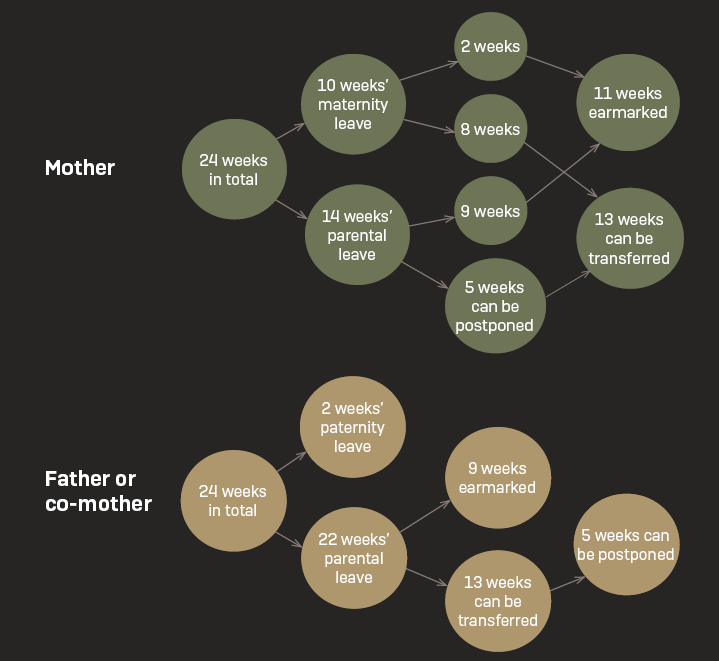Skrevet af
New rules on distribution of childbirth-related leave
The new childbirth-related leave model took effect from 2 August 2022.

The new model does not change the number of weeks of maternity/paternity/parental benefits to which parents are entitled, but includes significant changes in the distribution of the weeks with the aim that both parents must take part of the leave.
The starting point is that each parent is entitled to 24 weeks, of which 13 weeks can be transferred from one parent to the other. The model is more complex than the previous rules, so we have created this graphic to explain the breakdown of leave entitlement for each parent, including which parts of the leave are earmarked, i.e., must be taken by the named parent, and which parts are not.

This new leave model raises a multitude of questions for employers and many will have to revise their policy on childbirth-related leave. At Norrbom Vinding, we advise companies and organisations on all aspects of the new model as well as any questions that may arise when applying the model in practice. We also assist in drafting and revising policies on childbirth-related leave in order to ensure compliance with the new rules and advise on issues relating to paid leave.
Norrbom Vinding notes
- that the decisions illustrate that if an employer knows or ought to know that a candidate has a disability, the employer must consider reasonable adjustments enabling the candidate to perform the job that he or she applies for; but
- that the employer is not obligated to make adjustments that would be disproportionately burdensome, taking into account, however, whether any adjustments could be facilitated through public measures.
The content of the above is not, and should not be a substitute for legal advice.